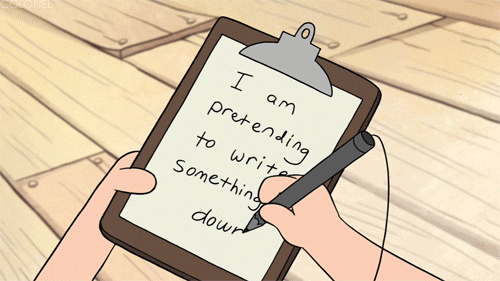Finals week is almost upon us, and I know that most of you are freaking out about exams—but really, who isn’t?—it’s important to keep calm and study on. Here’s a list that will help you get organized and identify effective learning strategies you can use to ace your exams. Good luck!

Break down chapters into topics

The best way to approach studying is to hone in on particular topics. It is far too vague and overwhelming to do a general overview of the whole 16-week course, and that doesn’t help you in the slightest with prioritizing study time.
Instead, determine what the main topics are going to be for the exam and break it down into sections. Take 10 to 15 minutes to sketch an outline. Begin with five main topics and write down three to five bullet points to study for each.
Find a new study spot

While it’s important to find a comfy spot to study, don’t get too comfy. Your home, while quiet and convenient, is also a place you associate with sleeping, eating and watching TV. In other words, there’s nothing stopping you from making a sandwich and taking a nap—tempting, right?
The best places to study usually have just enough sensory stimulation to keep you on your toes without getting distracted: coffee shops, the library, a bookstore or even a park.
Create your own practice questions

Many researchers believe that quizzing yourself is a great way to learn, and there are thousands of practice questions out there at your disposal. Why not take advantage of that? Find course-specific practice questions at Study Guide Zone, Course Hero and many other test-taking websites.
Write by hand

Science has proven that people who take notes by hand have a deeper understanding of the material than those who relied solely on their laptops. While computers have definitely made research more convenient, they tend to trick your brain into thinking you understand the material. It has an effect similar to using a highlighter.
Better yet, take notes first and then type them into study guides later. The repetition will help you learn the material, and then you can share the study guides with your classmates.
Explain and read it out loud

Explaining something to someone else is one of the best ways to determine what you expertly know and what you still need to take a second look at. Go through your notes and pull out the key points by reading them, re-writing them, then saying them out loud. This method really helps some students commit facts to memory.
Chew gum

Gum can do a lot more than just give you minty fresh breath—it might give you an A! Studies have shown that people who chew gum while studying and while taking the test performed better than those who didn’t chew gum at all or only briefly chewed gum before the test. The reason: chewing gum increases blood flow to the brain and stimulates memory recall.
I hope these tips help you and good luck with your finals. I believe in all of you!



